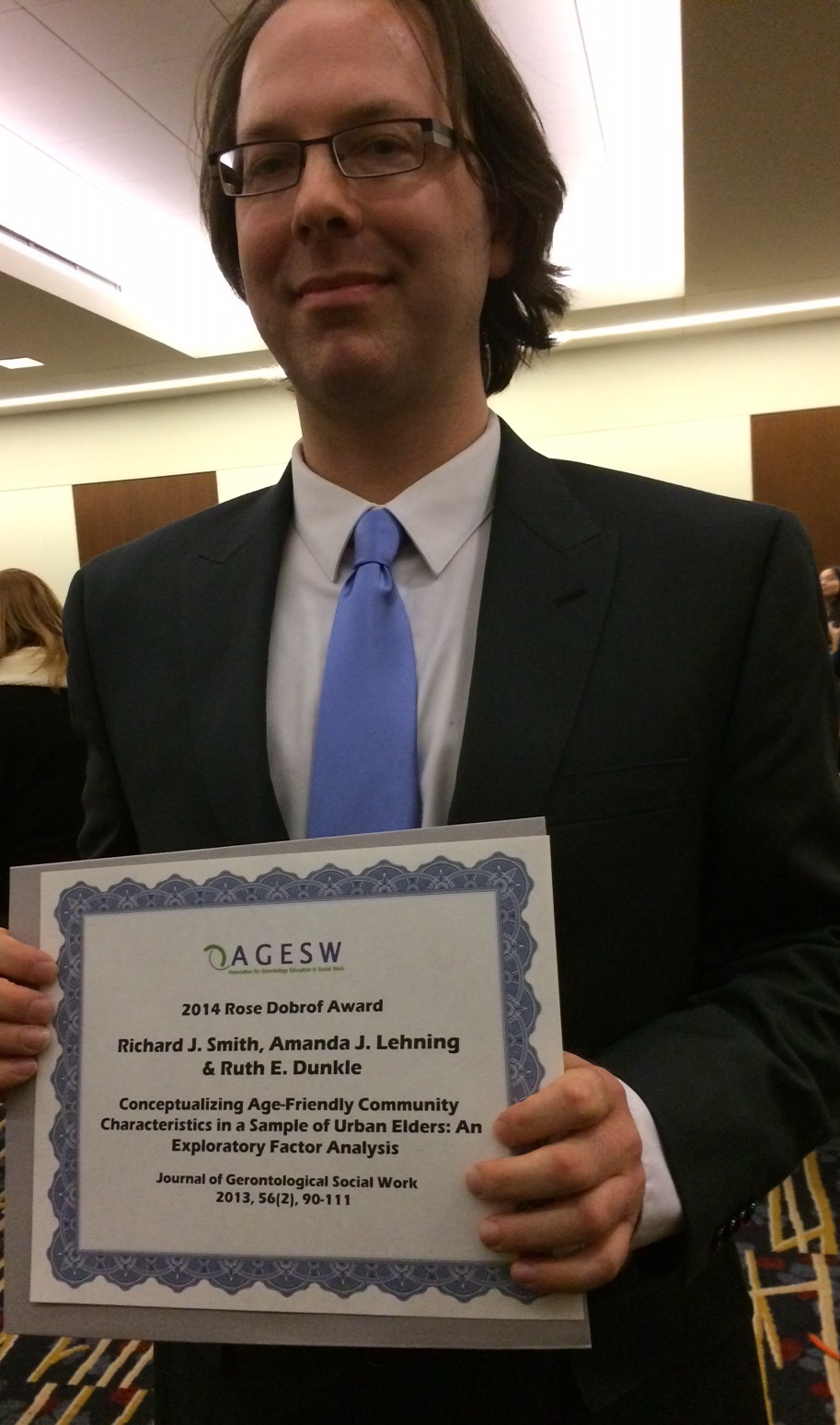WSU School of Social Work
WSU social work faculty wins national award for article on measuring a community's "age friendliness"

Richard Smith, assistant professor at the Wayne State School of Social Work, has earned national recognition for his research advancing methods to assess the "age friendliness" of communities using Detroit as a case study.
Along with collaborators Amanda Lehning of the University of Maryland, Baltimore and Ruth Dunkle of the University of Michigan, Smith was named a winner of the Journal of Gerontological Social Work Outstanding Article Award for 2013. Smith was first author of "Conceptualizing Age-Friendly Community Characteristics in a Sample of Urban Elders: An Exploratory Factor Analysis" - an article that advances measurement of the social and physical environmental characteristics that promote quality of life for older adults within a community.
Smith, a community development expert who received the Association for Community Organization and Social Administration's 2013 Emerging Scholar Award, demonstrated with his colleagues a way to combine self-reported perceptions from city residents with publicly available data about urban amenities to get a richer sense of community characteristics.
Starting with data derived from telephone interviews conducted in 2002 for the City of Detroit Needs Assessment of Older Adults by the Wayne State University Center for Urban Studies, the authors selected responses about social activity, health, housing and transportation. Next, they used proprietary data purchased from Dun & Bradstreet on the location of businesses, social service agencies and health facilities and combined that with public data from the Detroit Department of Transportation and Southeast Michigan Council of Governments on the location of bus stops and parks. Drawing from Smith's advanced training in geographic information systems and spatial statistics, the authors analyzed the data sets to determine whether the sample of residents enjoyed access to business and leisure, social interaction, health care, safe neighborhoods, social support, and community engagement.
An interdisciplinary researcher, Smith said he was excited to bring "a community development lens to gerontological research questions."
"Social work is a multifaceted discipline that lends itself to thinking about societal problems in new ways," Smith said. "Our innovative approach to conceptualizing and measuring age-friendly community characteristics is replicable, cost-effective, and will help urban planners and service providers in Detroit and other cities identify and meet the unique needs of older residents."
Smith and his coauthors received the award at the Association of Gerontology Education in Social Work reception, which was held on Nov. 7, 2014 at the Gerontological Society of America's Annual Scientific Meeting in Washington, D.C.